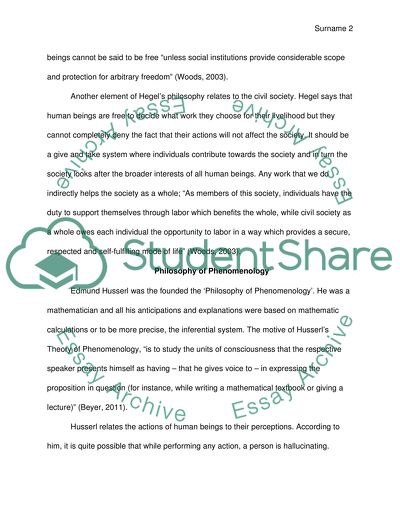Key elements from the philosophies of Hegel and Husserl Essay. Retrieved from https://studentshare.org/philosophy/1461625-key-elements-from-the-philosophies-of-hegel-and
Key Elements from the Philosophies of Hegel and Husserl Essay. https://studentshare.org/philosophy/1461625-key-elements-from-the-philosophies-of-hegel-and.


